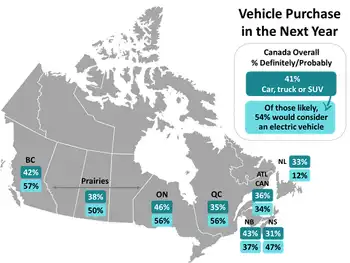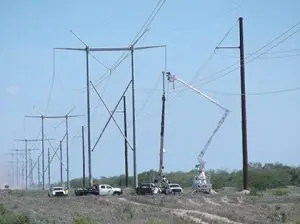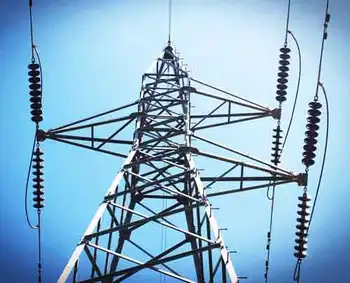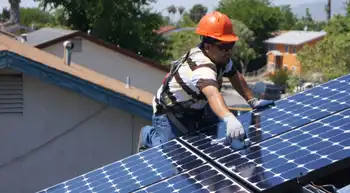Hydro workers struggle with hole, pole
TORONTO, ONTARIO - A blackout that affected thousands in Toronto's downtown core dragged into the early morning hours because Hydro officials couldn't find a massive replacement pole, nor could they get the thing into the ground once they'd found it.
At first the blackout — which struck shortly after 11 a.m. July 26 when lightning knocked down a service pole at a generating plant in the city's north end — was expected to last four hours. By the time service was finally restored to all customers at 5:30 a.m this morning, it had lasted nearly 19.
What caused the fifteen hour discrepancy?
At first, Hydro One didn't know where to get the replacement pole.
"A 90-foot pole is pretty unusual and we don't use them in very many places," said Peter Gregg, spokesperson for Hydro One, adding that most poles are in the range of 25 to 30 feet.
For the first while, officials believed they would have to fly in a replacement. Finally, one was located in Milton and trucked in.
But that wasn't the reason for the big delay. Rather, it was what they found when they started to dig.
"The pole got there pretty quickly, but the difficulty we ran into was that the site (near the Leslie St. spit) had a lot of debris. It was unclaimed land and when we started drilling, we hit steel beams."
As the afternoon passed, Hydro officials kept moving back the estimated time required for the repair. At first, 3 p.m. was suggested. At 4 p.m., officials floated 7 p.m. and then midnight.
But it wasn't until midnight that Hydro One got the pole into the hole, nearly 12 hours after the lightning snapped the original pole.
Power was not fully restored until 5:39 a.m.
Related News

Atlantic Canadians less charged up to buy electric vehicle than rest of Canada
HALIFAX - Atlantic Canadians are the least likely to buy a car, truck or SUV in the next year and the most skittish about going electric, according to a new poll.
Only 31 per cent of Nova Scotians are looking at buying a new or used vehicle before December 2021 rolls around. And just 13 per cent of Newfoundlanders who are planning to buy are considering an electric vehicle. Both those numbers are the lowest in the country. Still, 47 per cent of Nova Scotians considering buying in the next year are thinking about electric options, according to the numbers gathered…




